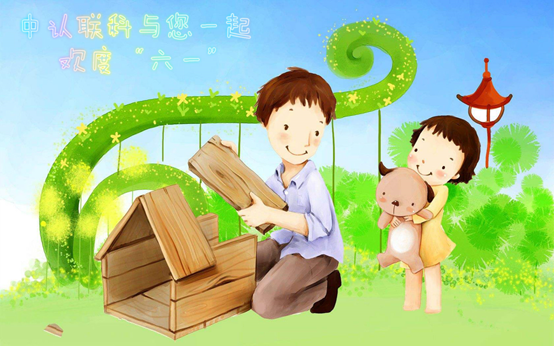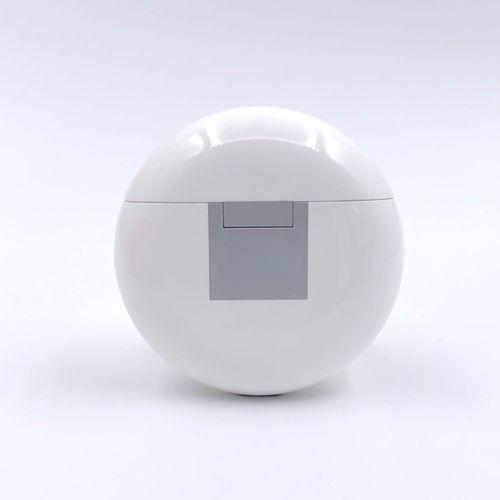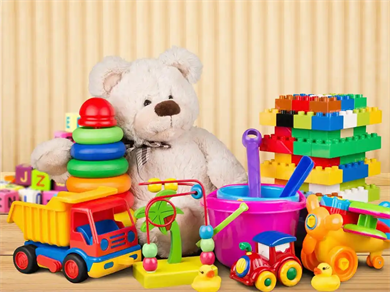Toys are a good helper to accompany children and help children grow up. On Children's Day, many parents will give priority to choosing toys as gifts for their babies.
Then, how to choose safe, safe and environmentally friendly toys for the babies on the day of the 61st day will become a big test for Bao Dabao and Bao Ma. To this end, ZRLK has collected some information about the quality and safety risks of toys to provide parents with a reference when buying children's toys.
Notes for children's day gifts
1. Look at the Chinese label, instruction manual and "CCC" logo
The State Administration of Market Supervision revised the "Description and Definition Table of Compulsory Product Certification Catalog", in which toys are combined into 4 categories from 6 categories, that is, electric toys, plastic toys, metal toys, and riding vehicle toys are subject to "CCC" compulsory product certification. Parents should pay attention to choosing toys with "CCC" certification marks on the packaging or products before purchasing the above imported toys.
2. Children's toys should avoid dangerous elements such as dangerous tips, sharp edges and dangerous protrusions on the surface.
2.1 Children sometimes put toys in their mouths, they should ensure that the toy materials should not contain harmful chemicals;
2.2 Objects ejected by toy guns and slingshot products are very likely to cause harm to children, and there is a risk of suffocation when swallowed by water absorbing bombs and crystal bombs. Therefore, it is not recommended for children to use;
2.3When buying toys with rulers and gauges, you must pay attention to whether the physical structure of the accessories is safe;
2.4Some children's bathroom toys, puzzle mats, etc., should pay attention to whether small parts and small ball structures are potentially dangerous
2.5 Pay attention to small parts and accessories (especially the tips and edges) to avoid the risk of swallowing.
When buying toys for babies under the age of 3, you should pay more attention to see if the warning "Small parts inside" is marked on the packaging, because the detachable small parts in the toys are easy to be swallowed by children under the age of 3, posing a choking hazard. At the same time, we should pay attention to some moving parts and round holes on the toy. If necessary, parents can use their fingers to test the touch to ensure that the children will not pinch their fingers during play. Attention should also be paid to check the metal and plastic edges of the toy, and it should feel smooth and not cut when touched.
3. The main points of purchasing plush toy dolls
3.1When buying plush toys, you should pay attention to check the small parts of the toys such as eyes, nose, decorations, etc. You can try to pull them by hand. Good toys are very strong, and inferior toys are generally easy to be pulled out.
3.2 Check the sutures of toys, the stitches of poor toys are loose, and they will loosen under a certain force, and the fallen toy decorative accessories and fillers are easy to be swallowed by children, causing suffocation hazard.
4. Be alert to injuries from magnetic toys
In order to make the magnet connect with various toy parts firmly, manufacturers often use a lot of small magnets with large magnetic force. Because of their small size, it is easy to cause children to swallow when playing. If children swallow two or more strong magnets, the magnet will Adsorption of each other in the digestive system and pressure on the intestinal wall may cause gastrointestinal perforation or intestinal obstruction, which may be life-threatening in severe cases. National standard GB 6675.2-2014 "Safety of Toys Part 2: Mechanical and Physical Properties" requires that toys must not contain magnetic components with a magnetic flux index greater than 50kG2mm2 and are small parts of magnetic parts. Parents need to consider carefully when purchasing magnetic toys. The quasi-CCC mark, pay attention to check the applicable age on the toy packaging.
5. Light radiation hazard of sound and light toys
Parents should pay attention to the hazards of light radiation generated by toys with LED lights when purchasing sound and light toys. The visible light emitted by the LED light enters the retina and is absorbed, which is very easy to cause thermal damage to the retina. When the strong light shines on the retina, the thermal effect of the light radiation can burn the retina, which is irreparable. In some cases, if the burn does not occur in the most visually sensitive area (fovea), people cannot even feel it, and when the burn occurs at the focal point of the optic nerve (blind spot), the retinal burn will cause blindness. The International Electrotechnical Standard IEC 60825-1: 2014 "Safety of Laser Products Part 1: Equipment Classification and Requirements" classifies and evaluates toys with luminous sources, and parents need to purchase products of reliable quality from well-known brands.
6. "Mud" toys pay attention to borax poisoning
Boron is an essential element of the human body. A small amount of boron is beneficial to the human body, such as preventing osteoporosis and promoting the metabolism of calcium in the human body. However, excessive intake of or exposure to boron can damage the children's reproductive system and thus damage their health . In order to increase the ductility and elasticity, and achieve the purpose of easier shaping, borax is usually added to soft clay and clay toys. Children lack the ability to identify and prevent dangers, the self-control is relatively poor, and the hygiene awareness is weak. To prevent excessive contact Parents should carry out effective supervision and let their children wash their hands in time after playing.
7. Pay attention to the plastic packaging bags of toys
7.1 When choosing toys packed in plastic bags, pay attention to the thickness of the plastic bag. The average thickness of the outer packaging of the toy (plastic bag or plastic film) is lower than the standard requirement of 0.038mm. If the thickness is too thin, it will cause children to attract the film to There is a risk of suffocation from the snout, and the curiosity of the child may cause the child to use the plastic bag as a toy. Once it is placed on the snout, the consequences will be unimaginable. Plastic bags with sufficient thickness and plastic bags punched as required greatly reduce this risk. At the same time, parents are reminded that after unpacking the toy packaging, the plastic bag should be destroyed and discarded in time.
7.2 It is important to note that some children's products other than toys may still harm children if they do not pay attention to how to use them. For example, remote control aircraft, remote control boat and other model products, parents should pay attention to the applicable age and warning content on the product packaging when buying, especially pay attention to the propeller cutting risk and the aviation radio station electromagnetic environment regional requirements to ensure children ’s Self-safety and national aviation electromagnetic environment safety.
8. When choosing toys, they should be purchased according to the actual situation of the child
8.1 3 to 4 year old baby's social skills improve rapidly, start to learn independently, like to imitate adults, choose a combination of brain and hands-on toys, can let the baby get a greater degree of learning space through educational toys, such as more blocks Building blocks, remote control cars, etc .;
8.2 The 4 to 6 year old baby's ability to express, understand, socialize, and logically judge is developing rapidly. You can choose small cubes, colorful clay and other toys
9. Guide to domestic and international toy compliance standards
China:
GB6675 series of national toy safety standards
GB6675.1 Safety of toys Part 1 Basic specifications
GB6675.2 Safety of toys Part 2 Mechanical and physical properties
GB6675.3 Toy Safety Part 3 Flammability
GB6675.4 Safety of toys Part 4 Migration of specific elements
EU:
EU Toy Safety Directive 2009/48 / EC
EU toy safety standard EN 71 (part 1-9)
United States:
American Toy Standard ASTM F963
US Consumer Product Safety Improvement Act CPSIA
Australia and New Zealand:
Toy Safety Standard AS / NZS ISO 8124
Japan:
Japanese toy safety standard ST2016
Canada:
Toy Regulations SOR / 2011-17













